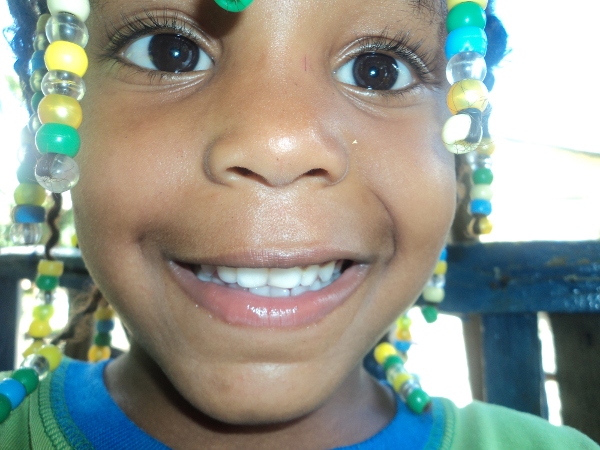I've been busy with several things recently, but the main task has been my Community Diagnostic. I'm supposed to visit at least 100 houses in the community to meet people, introduce myself, and learn about the batey and what the people here need. As of today, I've visited 81 houses, so I'm making good progress and should finish on time to present during our reunion August 9-12.
It's been a good experience so far, and I can see why the Peace Corps requires it: I've met a lot of wonderful people whom I would have never noticed otherwise. It's easy to walk past a house every day and never stop to think about the people living there, but not when you have to sit down and ask about their interests and struggles.
Coming up with good questions is one of the hardest parts of the Diagnostic; if they're too personal, some people may get put off and not answer honestly, but if they're too general, you don't learn very much. I've realized that some of my questions aren't very helpful, but others have been really interesting. Here are my 12 questions, translated into English:
- How many people live in the house?
- What do you do in a typical day?
- What work opportunities are available to the members of this community?
- Do you speak Haitian Creole? (I would like to learn!)
- What are some strengths of this batey, or the benefits of living here?
- What are the biggest problems in this community?
- Are you Christian?
- I'm currently fixing up the computers in the school, because they're in English and I need to put them in Spanish. When I finish with that, I hope to give a basic computer class (just teaching how to use a computer) and a class in Microsoft Office (teaching how to create documents). Are you interested in either of those classes?
- There are some clubs that Peace Corps volunteers occasionally give. One is for learning even more about computers so that when I leave there can be people to manage the computer lab. Another is for learning about and taking care of the Environment, and and third is for learning how to start and run a small personal business. All these are possibilities if there's enough interest.
- I visited the local nuns to ask about the documentation of children, because I know that's a big problem here, and the system in this country is very difficult. Do you have everything taken care of, or are some people still missing birth certificates or other documents?
- What forms of discipline are used in this community? When children behave badly, what happens?
- What health resources are available in this community?
The Creole question is helpful for connecting with them on a personal level. Most are Dominican, and some even start to get offended to be mistaken for Haitians, but once I talk about wanting to study the language, they open up and share a few words they know or laugh about how they still can't understand the language after being around it their whole life. If they're Haitian, I can tell them in Creole that I'm studying the language, but I can't say very much!
The question about Christianity helps me gauge their response to question 11. Child abuse occurs among Christians and nonchristians, but most of those who join me in opposing it are Christian, and most of those who seem dangerous are not. I've never had any problems personally, but there have been a few houses where question 11 is really uncomfortable, and I'm happy to leave.
Harsh physical discipline has been one of the hardest things for me to deal with here, and I want to do something to address the problem while I'm here. Gracias a Dios I've met many wonderful people in this batey who see the problem and want to help me fix it, and question 11 is what brings them out of the woodwork.





